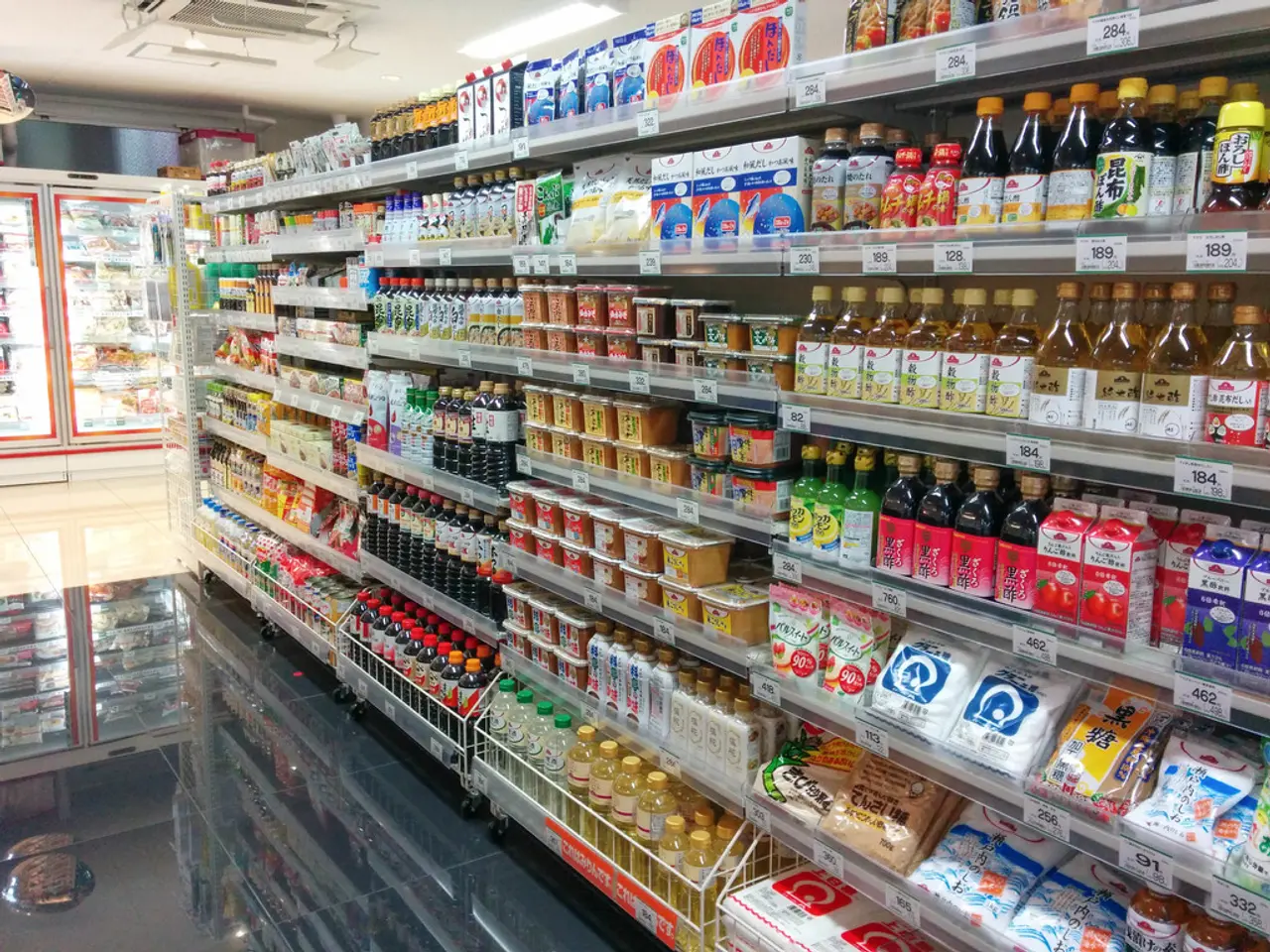Dropping summer vacation periods cause supermarkets' sales to plummet by 10%
In the scorching heat of Kuwait's summer, a noticeable slowdown in supermarket and cooperative society sales becomes evident. This seasonal decline in sales is often accompanied by a surplus of basic and non-essential goods, as both Kuwaitis and expatriates migrate abroad to escape the summer heat or for holiday reasons.
To combat this seasonal slowdown, retailers in Kuwait implement several strategies. Reducing inventory levels to avoid excess stock and minimize waste is a common practice. Offering discounts and promotions to stimulate purchases from the remaining population is another tactic. Adjusting operational expenses to maintain profitability despite lower sales volume is also essential. Some retailers even focus on enhancing the value proposition or shifting towards essential goods sales, which tend to be more stable even during low seasons.
While direct data specific to Kuwaiti supermarkets and cooperative societies was not found, this pattern of retail practices is consistent with common strategies observed globally in regions experiencing seasonal population shifts. Reports suggest that retailers in Kuwait are indeed adjusting to changing demand cycles.
The impact of Kuwait's unique summer migration phenomenon on local commerce is significant. To manage the drop in consumer activity effectively, the Ministry of Commerce and Industry, the Ministry of Social Affairs, cooperative societies, and the private sector coordinate efforts to monitor consumption during the summer. They reinforce strategic reserves to address the surplus in food and other items during the summer and organize shopping promotions and festivals to sustain revenues, especially ahead of the back-to-school period.
The back-to-school period is a significant time for retailers to maintain cash flow, as it follows the summer season. The surplus in food and other items during the summer is a factor that leads to the coordinated efforts by the mentioned entities. The shopping promotions and festivals are aimed at maintaining cash flow, providing opportunities for consumers to stock up on essentials at reduced prices.
In summary, Kuwait's retailers are adapting to the seasonal slowdown caused by the summer migration of residents. By implementing strategies such as reducing inventory, offering discounts, and organizing shopping promotions and festivals, they are managing the surplus and maintaining cash flow, particularly during the back-to-school period.
In the context of Kuwait's retail sector, finance plays a crucial role in managing the seasonal slowdown caused by summer migration. Retailers adjust operational expenses to maintain profitability despite lower sales volume and organize shopping promotions and festivals to sustain revenues, particularly during the back-to-school period, which is a significant time for cash flow.
To address the surplus of basic and non-essential goods during the summer, retailers in Kuwait focus on essential goods sales, that tend to be more stable even during low seasons, which is a strategic business decision aimed at preserving financial stability.




